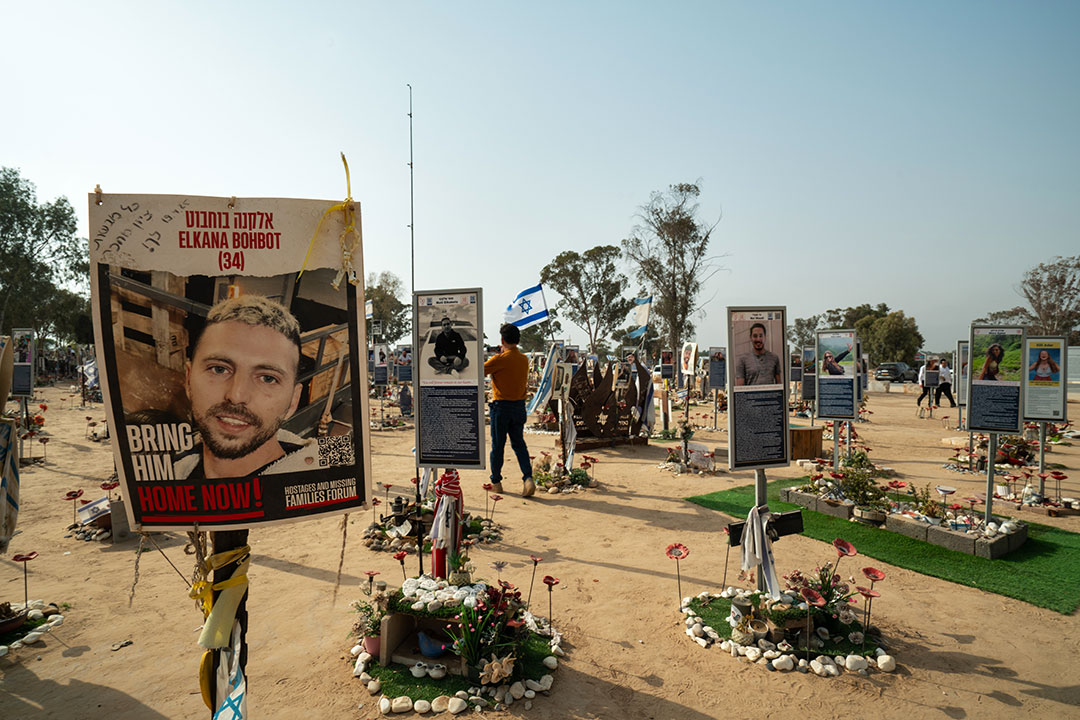
By Norman P. Aquino, Special Reports Editor
JERUSALEM/TEL AVIV — On that tense night in Jerusalem’s King George neighborhood in mid-June, the world felt narrower for Filipino caregivers Mildred D. Yambao, 38, and Lucy L. Gonzalez, 48.
Their phones buzzed, alerting them about a rocket attack. Moments later, sirens blared, and panic and confusion ensued. And then, a harsh realization: “We didn’t even know exactly where the nearest bomb shelter was,” Ms. Yambao told BusinessWorld while resting at a park in Jerusalem on a Saturday afternoon.
 The missile strikes were part of a broader escalation in late 2024 when Iran, in support of its regional allies, targeted central Israel — including Jerusalem and Tel Aviv — with rockets and drones, marking a stark shift from prior flare-ups that mostly focused around the Gaza Strip.
The missile strikes were part of a broader escalation in late 2024 when Iran, in support of its regional allies, targeted central Israel — including Jerusalem and Tel Aviv — with rockets and drones, marking a stark shift from prior flare-ups that mostly focused around the Gaza Strip.
Unlike the familiar shelling from Gaza that Ms. Yambao, who works in Ashdod near the Gaza Strip, had grown accustomed to, these longer-range strikes signified an expanded front and destabilized a region already worn by repeated cycles of conflict.
The war in Gaza, triggered by the Hamas-led Oct. 7, 2023 attack on southern Israel, continues to cast a long shadow. More than 1,200 people were killed that day, including one Filipino worker, while another Filipino survived after being kidnapped and held in Gaza for weeks before release.
Hamas militants took hostage 251 civilians from various Israeli kibbutzes near the Gaza Strip. To date, about 50 hostages remain in Gaza — only 20 of them are probably still alive, according to an Israel Defense Forces spokesperson — with their fate a persistent point of tension in peace negotiations.
More than 61,000 Palestinians have died amid Israel’s retaliatory attacks, according to the United Nations, citing the Hamas-controlled Ministry of Health in Gaza.
Among the Filipino caregivers caught in that violent spiral was Monica L. Biboso, who worked in Kibbutz Be’eri, one of the hardest-hit communities during the Oct. 7 assault. When Hamas militants stormed the kibbutz, the Iloilo native, who has kids aged 6 and 8 years back home, was inside her employer’s home caring for an elderly patient.
The Filipino caregiver, who came to Israel in 2015, was trained to prioritize her own survival during an emergency. But when trouble came, her first instinct was to save Ester Rot, her 82-year-old patient. She recalled not knowing how to lock the door of the mamad — a reinforced safe room — and had to hold the doorknob to prevent the terrorists from entering, as gunfire rattled outside.
For more than 15 hours, Ms. Biboso, who speaks Hebrew, and her Israeli patient crouched in silence, hearing screams and explosions outside. “I prayed the whole time,” she told Filipino journalists in Tel Aviv. “I thought it was my last day.”
When Israeli soldiers eventually secured the area, the images Ms. Biboso carried out of Be’eri would not leave her. Charred houses, broken windows, bodies and the grief of neighbors who had lost entire families haunted her long after she returned to work. The trauma resurfaced months later.
In June, when Iran launched missile barrages at Tel Aviv, Ms. Biboso — by then relocated to the city — suffered panic attacks during the strikes. Sirens triggered flashbacks of Be’eri. In the sealed room with her patient, she tried to stay composed, but her body betrayed her. “I wanted to be strong for my employer,” she said. “But my hands would not stop shaking.”
Ms. Yambao and Ms. Gonzalez know that tension well.
Ms. Yambao and Ms. Gonzalez, who are roommates in Har Nof, met in Israel through work. Ms. Yambao, a single mom who grew up in Angono, Rizal and worked at a semiconductor factory for 11 years, arrived in Israel in 2020, leaving behind her two children — an eight-year-old son and an 18-year-old daughter.
“I want to give them a better future,” she said. “I asked my daughter, who’s working now, to resume her schooling. What’s the point of me being here if she won’t study?” She works five days a week caring for a 75-year-old Israeli woman with Parkinson’s in Ashdod.
Ms. Gonzalez, from San Fernando, Pampanga, is a widow raising four children aged 14, 18, 22 and 24. She first worked in Taiwan as a caretaker before applying for work in Israel in 2017. Her patient, a 90-year-old woman with dementia, requires round-the-clock assistance.
“I’m both a nurse and a companion,” she told BusinessWorld in Filipino. “Sometimes I’m her cook, sometimes her therapist, sometimes her friend.”
LOCKED DOORSWhen the June attacks hit, the two tried to reach a designated bomb shelter — only to find it locked. “It was Holy Week, and only the municipality had the key,” Ms. Yambao recounted, teary-eyed. With adrenaline high and options limited, they, along with neighbors — foreign and Israeli — escaped to a nearby hotel’s basement.
“It wasn’t even a bomb shelter,” Ms. Gonzalez said. “We stayed under the stairs. They say the foundation there is strong. If there’s no shelter, that’s what you do.”
The mechanics of an attack had become second nature: phone beep, siren wail, a few seconds to dash for cover. In the shelter, they wait for 10 to 15 minutes after the blast to avoid falling debris. “You get used to it,” Ms. Yambao said. “Your heart becomes calmer. You stop panicking.”
For both, the Gaza conflict was already a familiar backdrop — missile fire, security alerts, and the occasional lockdown. But the Iran-Israel exchange widened the theater of war, adding uncertainty and fear.
“Israel civil and military defense are known to be effective worldwide,” Chester B. Cabalza, founding president of Manila-based think tank International Development and Security Cooperation, said in a Facebook Messenger chat.
“Safeguarding Israelis and other nationalities including Filipinos are their first priority after the Holocaust in Europe and the episodic wars against Israel since the re-establishment of the Israel state,” he added.
He noted that many Filipino caregivers in Israel who are not exposed to wars are coping well with the situation. Part of their briefing when they signed their contract is taking risks on hazards and the precarious situation in Israel, he pointed out.
“They survive the way Israelis also try to escape missile and drone attacks,” Mr. Cabalza said. “They hide in bunkers just like their employers.”
“The reason why they can’t leave their risky job is their promise to send money and secure the future of their families in the Philippines,” he said. “The lack of security of tenure and job opportunities for Filipino caregivers in the Philippines are the main reasons why we see brain drain.”
“Tel Aviv also pays higher wages to caregivers and the affinity they receive makes them stay in Israel amid the dangers of war,” he added.
Despite the danger, neither plans to leave. Ms. Gonzalez earns about 6,000 shekels (around P100,000) a month, including occasional part-time work on her off-days. Ms. Yambao makes slightly less but her pay is a far cry from her P25,000 gross income in the Philippines. The money supports tuition, food, and medical bills for their families back home.
‘THERE GO THE DOLLARS’Their work is part of a bigger picture: overseas Filipino workers (OFW) sent home a record $34.5 billion in cash remittances in 2024, equivalent to more than 8% of the Philippines’ gross domestic product, helping sustain millions of households and supporting the country’s foreign exchange reserves. Israel hosts about 30,000 Filipino workers, most of them in caregiving roles.
Teri Bautista, vice consul at the Philippine Embassy in Tel Aviv, said they are “in constant communication” with OFWs in Israel — caregivers, hotel workers and aviation engineers — through their Facebook page. The Filipino community in Israel is close-knit and is organized into groups on WhatsApp depending on their regions. Each group has a leader who is connected to the embassy, he pointed out.
“Since the conflict here is constant, we know that when we respond, psychological counseling should be automatic,” he said in an interview. He added that of the several-dozen OFWs who were tested psychologically online, five had to undergo follow-up sessions with Filipino doctors to help them deal with trauma.
Ms. Biboso said she undergoes psychiatric help care of the government of Israel.
“People there say, ‘Just come back.’ But there’s no comparable work,” Ms. Yambao said. Her kids’ tuition is nonnegotiable. “If I go home now, it all stops. That’s not an option.”
Caregiving in a war zone is a strange duality — tending to others while fearing for your own safety. “When something drops — like the poop from the elderly Israelis we care for — we just laugh and say, ‘There go the dollars,’” Ms. Gonzalez said. “It’s how we turn messy moments into something light, helping each other stay cheerful through the hard parts.”
Though the political backdrop may continue shifting, the paths of these Filipino women remain anchored in care and responsibility. “Our hearts are steady now. We don’t panic anymore,” Ms. Yambao said. “This is our life here — and we’re staying.”
For now, the sirens have quieted in Jerusalem and Tel Aviv, but tensions remain. With Iran’s missile capability proven and Gaza still volatile, caregivers like Ms. Gonzalez, Ms. Yambao and Ms. Biboso know that the next alarm could come at any time.